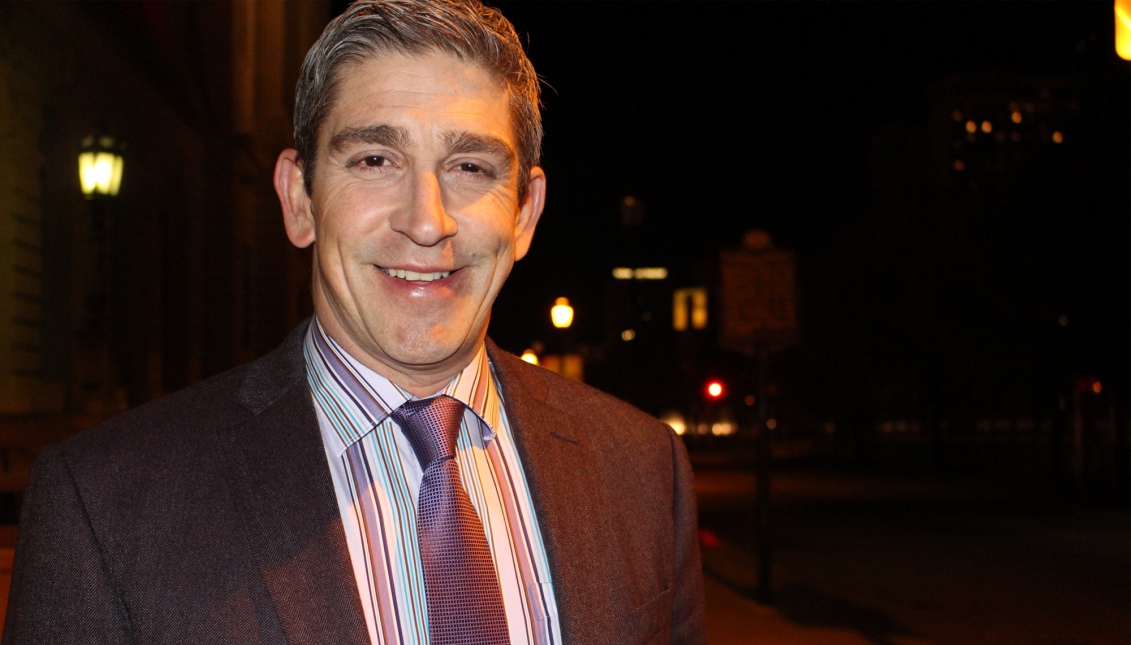
Richard Blanco on Obama, Beyoncé and Sofía Vergara
The first time I saw Richard Blanco was in 2013, during the second inauguration of President Barack Obama in Washington D.C., when the Cuban became the first immigrant, the first Latino, the first gay, and the youngest person to be the U.S. inaugural poet.
The first time I saw Richard Blanco was in 2013, during the second inauguration of President Barack Obama in Washington D.C., when the Cuban became the first immigrant, the first Latino, the first gay, and the youngest person to be the U.S. inaugural poet.
Now I’m with him outside the Free Library of Philadelphia smoking a cigarette and talking in Spanish — he says he wants to practice — about his work, the Latino experience of Cubans in Miami, the representation of Hispanics in TV, his life after participating in Obama’s inauguration, and also about Beyoncé and Sofía Vergara.
The poet is visiting the city of brotherly love for a presentation of his memoir, “The Prince of los Cocuyos: A Miami Childhood,” in which he narrates his experience growing up in a Cuban family in Miami, and his attempts to understand his place in the United States while discovering his sexual and artistic identity.
The search for his place and the intersection of identity — in cultural, sexual and artistic terms — are obsessions around which his work revolve. Not surprising for someone conceived in Cuba, born in Spain, and then brought to the U.S., first to New York, and soon after to Miami, when he was very young.
“It was like having grown up between two imaginary worlds,” Blanco said. On one side, the Cuba of the 1950s and ‘60s, of his parents and grandparents: “That paradise I was from but had never been to.”
On the other, the representation of the United States that Blanco saw on TV and which was far different from what he lived in such a Latino city as Miami, in which many speak Spanish.
During his presentation in Philadelphia, Blanco read a section of his memoir in which he narrates how his grandmother, who resisted anything American, decided to go to a supermarket instead of a Cuban bodega for the first time, and to taste something as American as “Easy Cheese” for the first time.
Hearing the audience laugh out loud, there is no doubt that Blanco, besides being an great poet, is also an amazing writer whose literary work not only captures the Latino experience of Cubans in Miami, but also entertaining enough to transition to film or television.
Here are excerpts of our conversation:
- About the process of writing the poem “One Today” for Obama’s inauguration:
“There was always a part of me that didn’t feel American. The sense of the poem is to unite us all as one — including myself as Latino and gay, which is something in which I take a lot more pride now. At that time I realized that had always been the American story, and that there is nothing to be ashamed of.”
- About his life after the Obama inauguration:
“It has changed completely. I finally feel American. That’s going to affect the poems I’m writing. On the other hand, it opens the door to poetry on a larger scale. I’ve spent the last months since giving lectures around the country, and that has opened my eyes to the power that poetry has to be a great part of different conversations about any issues of immigrant or LGBT communities, or any other issues. It has convinced me that poetry has a great power. And I also met Beyoncé (laughs).”
- About meeting Beyoncé:
“She was terrific. I asked her if she was nervous before singing the National Anthem and she said she was, and that she couldn’t imagine what it was like for me to write that poem in such a short time, and then read it for the first time in front of 850,000 people.”
- About marriage equality and the next frontier for LGBT issues:
“The fact that we can get married doesn't mean that everything is solved. We have to keep in mind that there’s still prejudice and that many young people still face problems. In Latino communities there are also other types of conversations we need to have. We are not going to start by getting married, but by asking our family if it’s OK to bring our partner to the Thanksgiving dinner.”
- About being gay and Latino:
“Those narratives can’t be separated. My story growing up as a young Latino kid who knew he was gay is not the same as the story of an African American. Who we are as people in the cultural sense affects who we are as gay people. I feel a lot more comfortable in a gay Latino community than in a gay Anglo community.”
- About the possibility of seeing his work in the small or big screen:
“I would love it. There is conversation to do something on TV, but I would prefer a movie. I think it’s incredible that there has not been a show or movie in the United States that captures what it is to be Latino in this country.”
- About Sofía Vergara and Modern Family:
“What I love about Sofía Vergara is that she dares to represent a genuine character. Although I am Cuban, I recognize that my cousins are almost exactly the same — with the nails, the high heels — and with no shame. It’s a true representation of Latinas and yet that doesn't mean that all Latinas are like that. We have our stereotypes and sometimes we act them. When I want to be Cuban, I am very Cuban, and when I don’t, I’m not. That is also part of being Latino and representing truly who we are.”










LEAVE A COMMENT:
Join the discussion! Leave a comment.